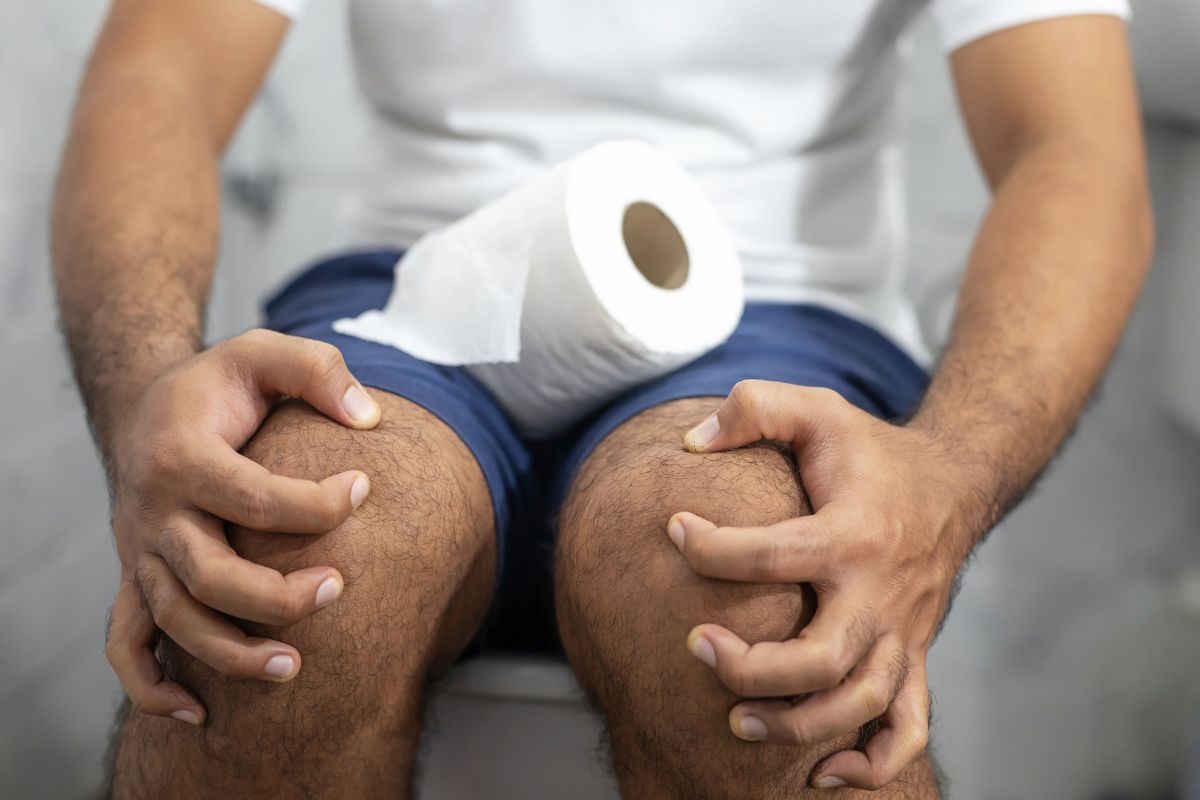If you have ever experienced a bowel obstruction, then you can know how painful it can be. They can range from severe to mild discomfort or agonizing pain. But is the cause always fecal matter?

The short answer is: no. There can be many reasons why you are experiencing discomfort in your bowels. Your intestines can be twisted, you may have a tumor or you may be experiencing discomfort or pain from recent surgery which has left scar tissue.
So how can you determine what kind of bowel obstruction you have? Will you still be able to pass a stool with a bowel obstruction?
What is the best way to alleviate any pain you are experiencing in your bowel? Well, if you want to know the answers to these questions, then we would suggest that you keep reading.
What Are The Common Symptoms Of Bowel Obstructions?
There are many pains and discomforts that can occur in your bowel area. Here are a few of the symptoms that you might have experienced to varying degrees of severity:
- Nausea or vomiting – this can occur sporadically, however, if you have experienced this for a long period of time, then it might be an indication of something more serious.
- Diarrhea – this can also be in isolated bursts or over a long period. This can also come in conjunction with stomach cramps.
- Constipation – the fact that you cannot pass stools might be an indication of something seriously wrong with your stomach.
- Bloating – this will usually take the form of swelling in your stomach. If you have noticed a tenderness in this area, then it could be because of a bowel blockage.
- Loss of appetite – if you are struggling to eat as much as you normally would, then could also be a sign of intestinal obstruction.
- Abdominal pain – this might range from mild to severe, but in both cases, then you might be looking at some form of bowel obstruction.
If you are experiencing any of the above for a period of longer than a week, then it is important to consult with a doctor immediately.
If you do not get these symptoms treated in time, then it might lead to something more serious.
What Types Of Bowel Obstructions Are There?
Here is a list of some of the main bowel obstructions that you can experience:
- Partial obstruction – this is when only part of the intestine is blocked. This could be the result of solids, gases or liquids. Sometimes this will dislodges by itself. This will often cause discomfort and not pain.
- Pseudo obstruction – this is when you’ll experience all the symptoms of obstruction but without an actual obstruction being in your bowel. This is a very rare condition.
What Can Cause A Bowel Obstruction?
There can be a few causes of this kind of obstruction. Two of the primary ones are mechanical and nonmechanical obstructions. Let’s look at the distinction between the two:
Mechanical Obstructions
- Scar tissue – this can be from a recent or historical surgery.
- Foreign objects – this is something that is not food matter.
- Gallstones – this is when a build-up of calcium occurs in the stomach over a period of time.
- Hernias – this is when part of the stomach lining prolapses.
- Tumor – this can be a benign or malignant tumor.
- Inflammatory Bowel Disease (OBD) – This is when the bowel becomes inflamed. This usually occurs later on in life.

Nonmechanical Obstructions
The difference between this and a mechanical obstruction is that the actual process of the intestines is interrupted. This is when the intestine stops contracting in the usual way.
- Scarring – again, this is not something that will block the intestine, but rather something that affects the intestine itself.
- Diabetes – this can affect a wide range of organs, the cause being not enough glucose getting to the cells.
- Hirschsprung’s Disease – this is when there are no nerve endings in the intestine itself.
- Muscle disorders – illnesses such as Parkinson’s will affect the overall functioning of the intestine itself.
- General anesthetic – this will interrupt the functioning of the intestine, often causing the contractions to be a lot slower.
- Pain relief medication – again, this will act in much the same way as a general anesthetic in that it can alter the rhythm or intensity of the intestines’ natural contractions.
What Else Can Cause A Bowel Obstruction?
There are many conditions that can lead to the intestines becoming more blocked over time. Here are just a few:
- Cancer – if you have cancer in the bowel, then this might cause the intestines to stop functioning as they normally would, leading to mechanical and nonmechanical obstructions.
- Crohn’s disease – this cab often affects the functioning of the bowels and even leads to the removal of the bowel entirely.
- Ulcerative colitis – This is a long-term condition where the bowel and the intestines become inflamed.
- Previous surgery on the abdomen – could put stress on the colon that will affect the functioning of the intestines themselves. This might increase the number of objects that adhere to the side of the intestines.
- Radiation therapy – can also alter the functioning of the intestine on a cellular level.
Can You Still Pass A Stool With A Bowel Obstruction?
Yes, although this will depend on what kind of obstruction you have. If you have a nonmechanical obstruction, then you might still be able to pass stools, although this will be a lot more difficult.
You can take laxatives to help you pass stools easier when you are suffering from a bowel obstruction. If you have constipation that lasts for longer than a few days, then you’ll want to seek medical attention urgently.
Bowel Obstructions And Old Age
As you get older, the function of the liver will be a lot less efficient, which will increase the likelihood of bowel obstruction.
If you are suffering from a malignant tumor in old age, then this might be another reason that you are suffering from a blockage.
Conclusion
We hope that our guide to bowel obstructions and how to identify which type you have has given you a better idea of what course of action you can take.
- Understanding Male Reproductive Health: A Complete Guide - February 2, 2025
- Simple Healthy Skin Habits for Radiant Skin - December 6, 2024
- Unlocking the Connection Between Nutrition and Mental Health - December 3, 2024








